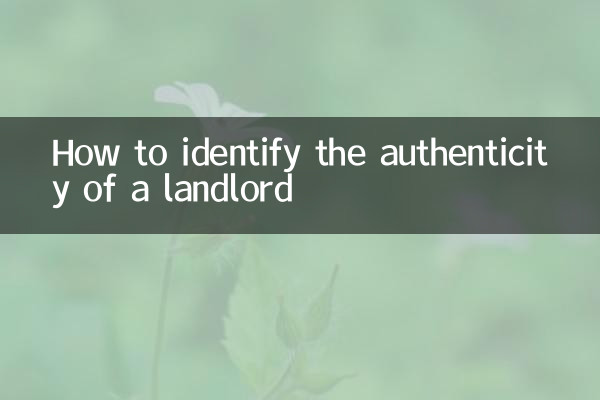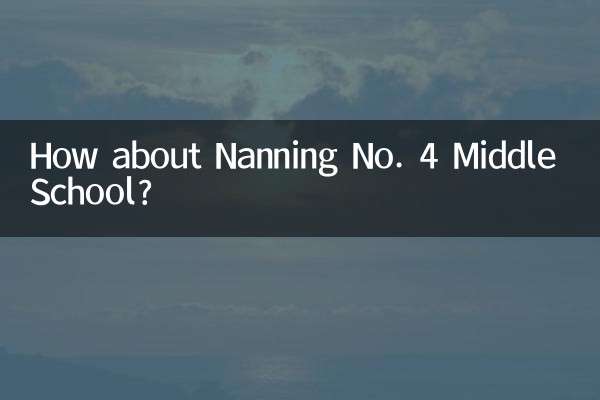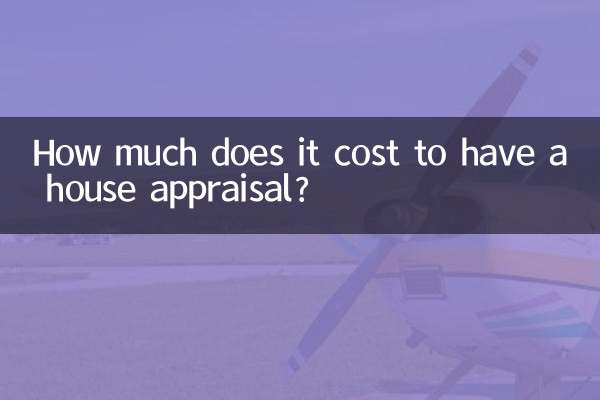How to identify the authenticity of landlords: a must-know guide to avoiding pitfalls when renting
In the rental market, it is not uncommon to encounter false landlords or second landlords, which can range from losing the deposit to getting involved in legal disputes. This article combines the popular rental topics and cases in the past 10 days on the Internet to compile aStructured Identification Guide, to help tenants avoid pitfalls.
1. Common characteristics of fake landlords

According to recent rental rights protection cases, fake landlords usually have the following characteristics:
| Features | Specific performance | Risk warning |
|---|---|---|
| Identity information blurred | Refuse to provide the original ID card or real estate certificate, and only provide photos or copies | Possibly using someone else's identity |
| Rent is extremely low | The price is more than 30% lower than the same lot, and annual payment is required | Commonly found in fraud gangs |
| Refuse to view houses offline | Only video viewings are provided on the grounds of "out of town" and "epidemic isolation" | The property may not exist |
2. Key verification steps
The authenticity of the landlord can be effectively verified through the following 4 steps:
| steps | How to operate | Tools/Channels |
|---|---|---|
| 1. Document verification | It is required to check that the landlord’s ID card is consistent with the real estate certificate, and pay attention to the validity period of the certificate. | Public Security Bureau Verification Mini Program |
| 2. Property rights inquiry | Verify property information through the Real Estate Registration Center | Local housing authority official website/offline window |
| 3. Property verification | Confirm the identity of the owner and the status of the house with the community property management | Property office or housekeeper |
| 4. Contract filing | Requires leasing contract filing (mandatory in some areas) | Housing and Urban-Rural Development Committee leasing service platform |
3. Early warning of new scams in the near future
According to netizens’ revelations and police reports, the following new routines have appeared recently:
1."Entrusted rental" trap: The fake landlord presents a forged notarized power of attorney, but in fact the original landlord does not know about it.
2."Short-term rental to long-term rental" scam: Pretend to be a tenant and sublet someone else's house, collect the deposit and then disappear.
3.“One room for multiple rents”: The same apartment is rented to multiple people at the same time, taking advantage of the time difference to commit fraud.
4. Rights protection suggestions
If you have encountered a fake landlord, it is recommended to take the following actions immediately:
| situation | Countermeasures | Legal basis |
|---|---|---|
| No contract signed | Keep chat records and transfer vouchers, complain to the platform or call the police | Criminal Law Article 266 Crime of Fraud |
| Contract signed | Claim to the court that the contract is invalid and require the return of rent | Article 148 Fraud Clause of the Civil Code |
| Involving second landlord | The original landlord is required to produce a sublease consent letter, otherwise the contract may be terminated. | Article 11 of the "Measures for the Administration of Commercial Housing Leasing" |
Summary:Before renting a house, be sure to follow the "three checks principle" - check the person, check the house, and check the contract. If you encounter suspicious situations, you can consult through the 12345 citizen hotline or the local housing and construction department. Keep all transaction evidence and do not let down your guard due to the temptation of low prices.

check the details

check the details